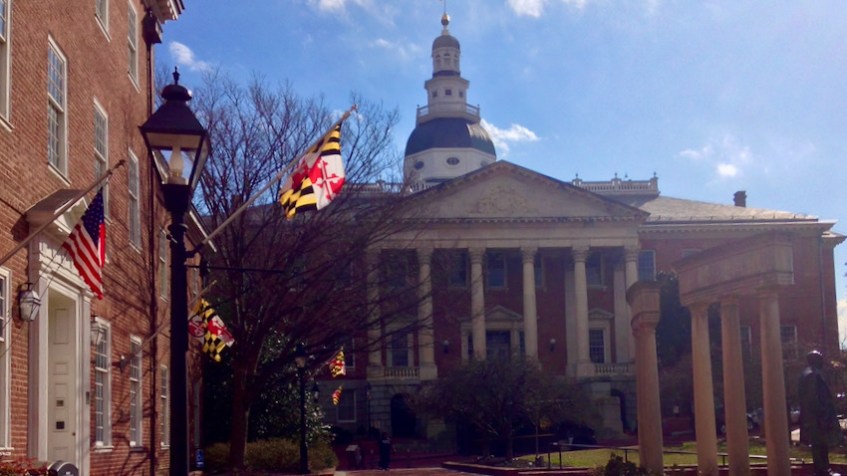
This was a good year for Maryland electric vehicle legislation. A number of bills that are of interest to EV drivers passed the legislature and have been sent to Governor Hogan to sign.
PlugInSites followed the progress of over a dozen electric vehicle related bills in the Maryland General Assembly in 2021. About half of the EV bills passed. In general, only about one in three bills pass in Annapolis in any given year, so we did pretty good.
Here is a brief rundown of what passed, what didn’t and what changes were made along the way.
The Maryland Electric Vehicle Tax Credit
The Clean Cars Act of 2021 (HB 44), as introduced, had several goals. First was to fund the backlog of applications from EV purchasers who are on the waitlist from the prior EV tax credit program. Then to extend the tax credit for two more years. And finally it was to extend the EV charging equipment rebate and increase annual funding. The good news is that the funding for the backlog stayed in the bill. That is welcome news for EV drivers who have been waiting for their checks of up to $3,000. In addition, the Electric Vehicle Recharging Equipment Rebate Program will be extended for two more years and the funding will increase from $1.2M to $1.8M annually.
Unfortunately, the part of the original bill to extend the EV excise tax credit was removed. This came about because of concern over a provision in the federal COVID-19 relief act that prohibits states from using any of the $195 billion of federal aid “to either directly or indirectly offset a reduction” in net tax revenue. For official information about the Maryland Excise Tax Credit for Plug-in Electric Vehicles, visit the MVA Website.
Pre-Wiring for EV Charging
House Bill HB 784 to encourage buyers of new residential housing units to pre-wire their homes for EV charging passed in the final hours of the session. This bill was sponsored by my representative, Delegate Jen Terrasa. I testified in support of this bill in the Senate Education, Health, and Environmental Affairs Committee along with EV advocate Paul Verchinski who is a big proponent of this legislation. This will ensure that home builders inform buyers that they have the option to include a Level 2 charging station or a dedicated electric line in their garage, carport or driveway. The builder must also provide information about EVSE rebate programs and other incentives.
Right-to-Charge
The Electric Vehicle Recharging Equipment for Multifamily Units Act (HB 110) will take effect October 1, 2021 assuming the Governor allows it to become law. This would make Maryland the 9th state to prohibit condo boards and home owners associations from denying a homeowner permission to install an electric vehicle charging station in their dedicated parking space. Read more at Maryland “Right to Charge” Bill Passes.
Office of People’s Counsel
The Office of People’s Counsel Environmental Reform Act (HB 30) will require the Office of People’s Counsel to hire additional staff and experts who will focus on environmental issues. The Act will also include the People’s Counsel as a member of the Maryland Zero Emission Electric Vehicle Infrastructure Council (ZEEVIC). This bill was originally intended to create a separate Climate Counsel in the Public Service Commission. If the Governor approves the bill, it will take effect October 1, 2021.
Electric Transit Buses
The Zero–Emission Bus Transition Act (SB 137) passed on the very last day of session. This will mean that beginning in fiscal year 2023, the Maryland Transit Administration must only purchase zero-emission buses for Maryland’s transit bus fleet, subject to certain exceptions.
Anti-ICEing
House Bill HB 480 would have prohibited a person from parking in a designated EV charging space unless it’s an electric vehicle connected to the charging equipment. This “anti-ICEing” legislation has been proposed in the Maryland General Assembly almost every year since 2012. This issue has generated over a dozen bills in the past decade if you count ones filed in both chambers. Every statewide Maryland anti-ICEing bill has failed. It almost passed this year.
HB 480 was called for a vote less than 90 minutes before the end of session. A Senator stood to ask who would pay for the signs to be posted at the charging stations. In the midst of that question being addressed, another Senator made a motion to “Special Order” the bill. That essentially postponed the vote during the final frenzied minutes of the session when they are racing to beat the deadline to get bills passed. As the clock ticked toward midnight, the Special Order for HB 480 was never called. The 13th Maryland anti-ICEing bill died the moment the gavel dropped. Perhaps a 14th bill will have better luck next year.
Electric School Buses
Electric School Bus Pilot Program (HB 832) passed in the House but didn’t advance in the Senate. This bill would have established an electric school bus pilot program to be implemented and administered by the Public Service Commission. Electric school busses are popular among EV, clean air, and public health advocates. It had no opposition. Maybe it will come back as a bill next year.
Follow the progress of EV related legislation at the PlugInSites Electric Vehicle Legislation Tracker.
